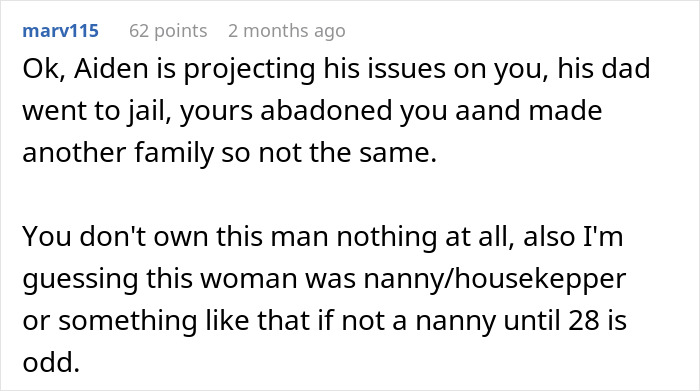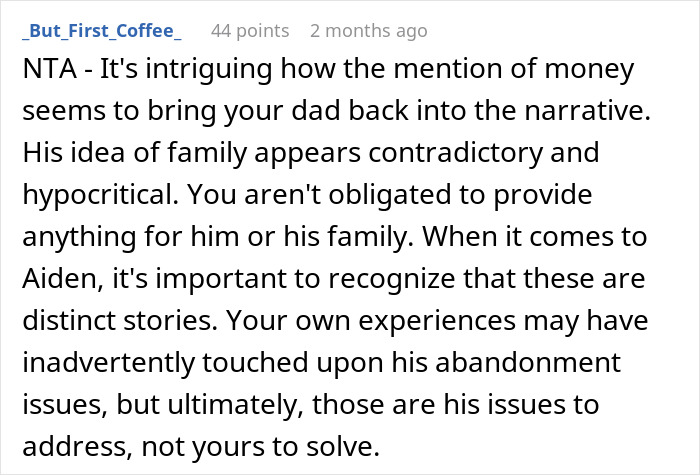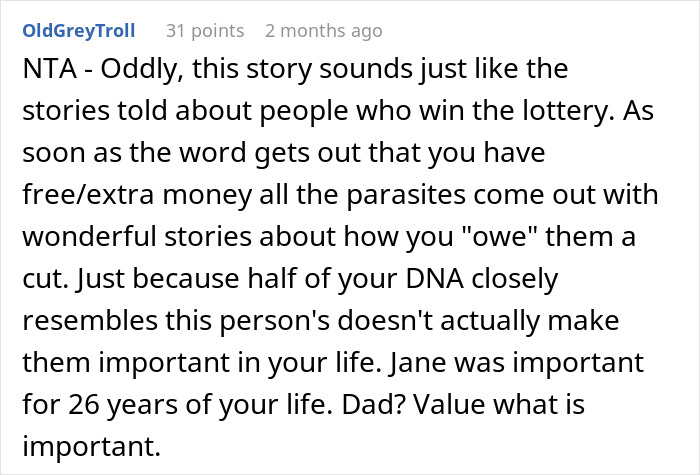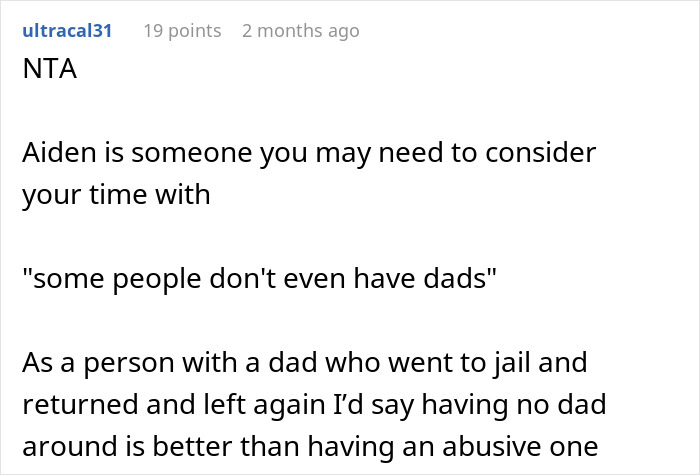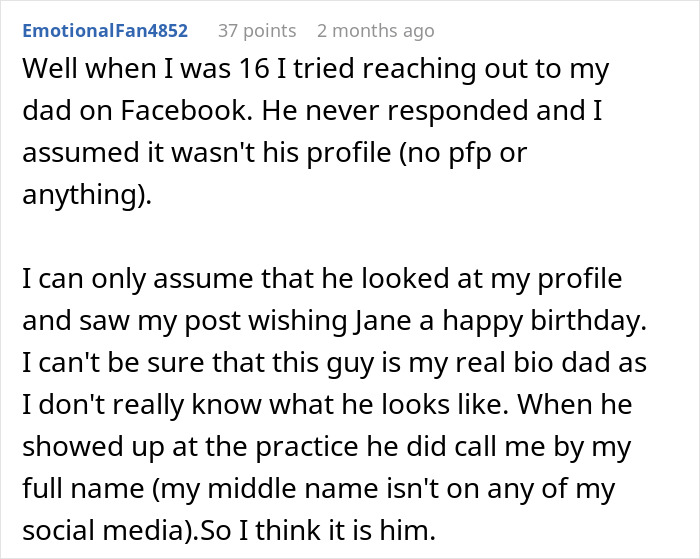Psychologists say that growing up with both a mother and a father is essential for a person’s development. Yet the statistics show that, in the U.S. alone, around 18.3 million children live without a father: that’s about 1 in 4 kids. Thus, other family members or nannies often have to help mothers raise their children.
And sometimes, these kids bond with their nannies so much that they might want to thank them for all their hard work once they’re grown up. That’s what this woman had in mind when she decided to gift her former nanny a house. However, her estranged father then decided to show up and demand financial help. Hesitant whether turning him down was the right choice, the woman asked others to weigh in.
Children often love their nannies like second mothers, even when they grow up

Image credits: Karolina Grabowska / pexels (not the actual photo)
But when this woman chose to thank her former nanny by gifting her a house, her estranged father was not happy
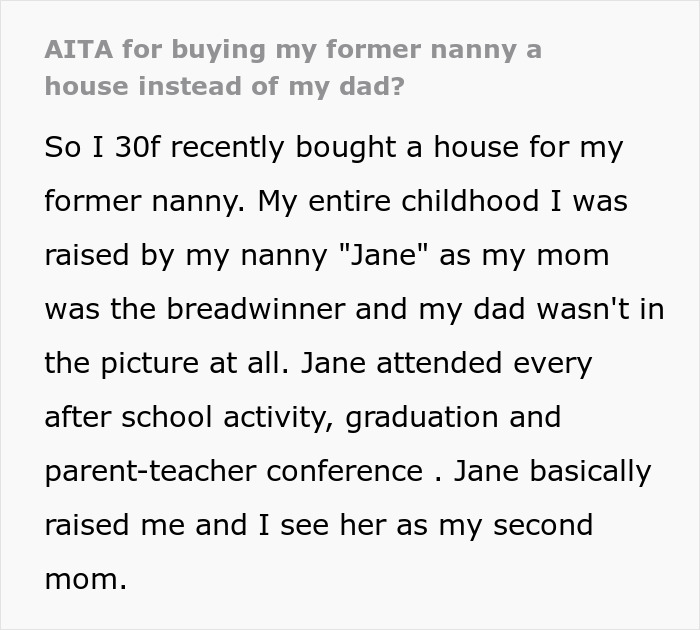
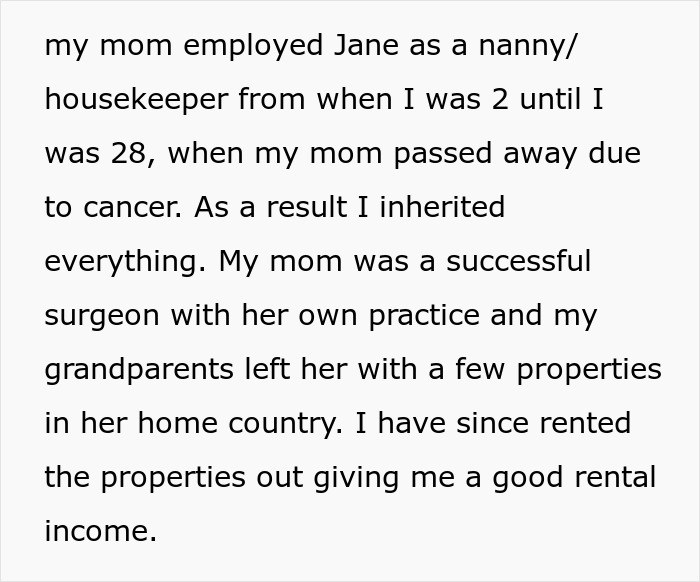

Image credits: Pavel Danilyuk / pexels (not the actual photo)
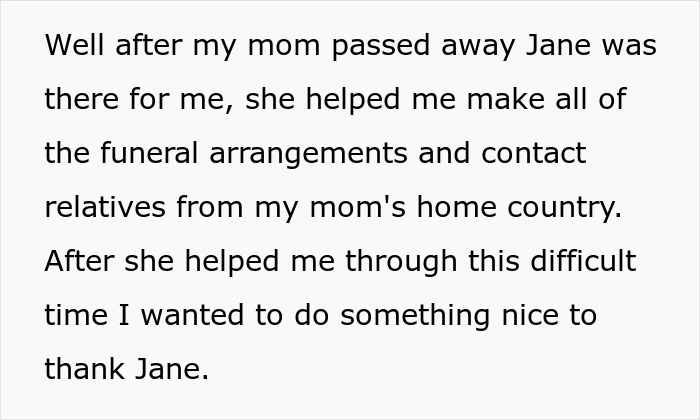



Image credits: Pavel Danilyuk / pexels (not the actual photo)


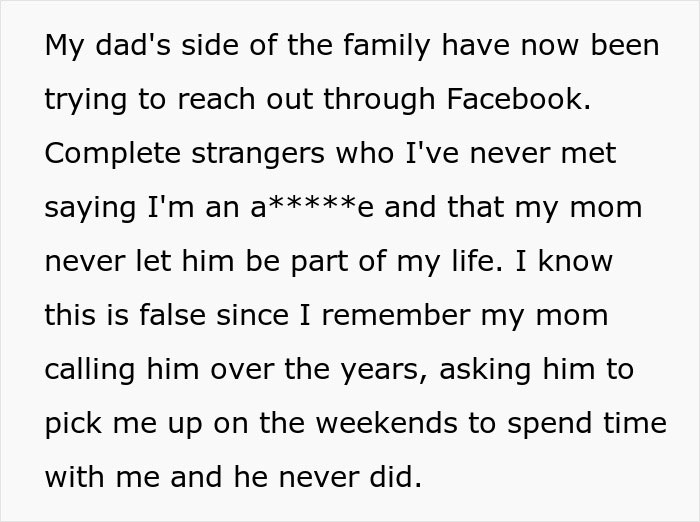

Image credits: Karolina Grabowska / pexels (not the actual photo)
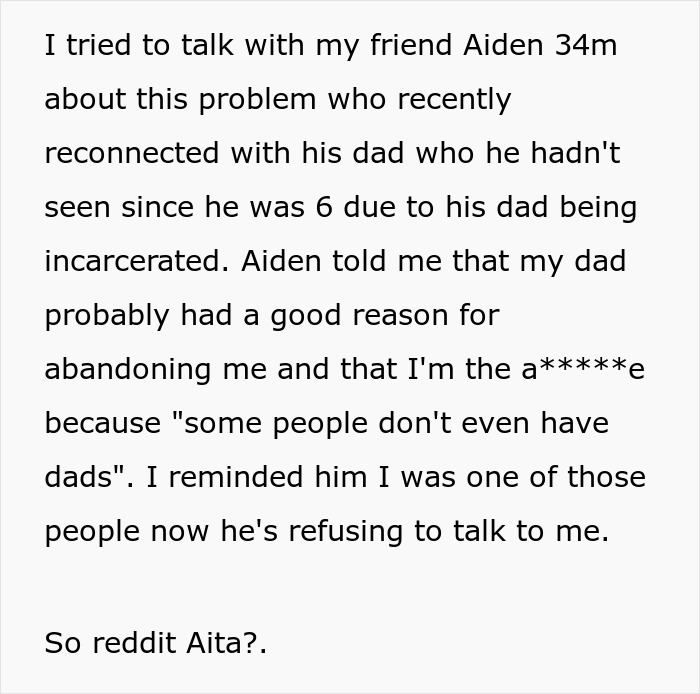
Image credits: EmotionalFan4852
Adult children are under no obligation to reconcile with their parents
No matter how entitled and hurt the father might feel in this situation, it’s understandable that the daughter feels a stronger bond with the nanny who was there for her and not the father who left.
Psychotherapist Amanda Ann Gregory said in a previous interview with Bored Panda that the parent who left should initiate reconnection. That responsibility does not lie with the child. And if an estranged parent shows up on your doorstep, that doesn’t mean that there’s definite reconciliation in the future.
“Reconciliation occurs when two or more people decide to enter into a new relationship after harm has occurred in that relationship,” she previously told Bored Panda. “Reconciliation does not wipe the slate clean, nor does it dictate what the relationship will become.”
“Family members who have reconciled have entered into relationships that are close and loving, kind yet distant, or simply treated each other as polite strangers. Reconciliation is not forgiveness (often defined as a decrease in guilt and resentment), and reconciliation does not require forgiveness in order to occur. Family members can feel guilt and resentment and also choose to reconcile. In contrast, they can forgive and choose not to reconcile.”
And the reasons for that can be many. “One of the main reasons why people choose not to reconcile is that they do not feel safe,” according to Gregory. “They may not feel safe to have any relationship with a family member for multiple reasons, such as it feels too overwhelming and emotionally unsafe to address their own childhood trauma, lack of attachment, guilt, shame, and make any needed changes in order to reconcile.”
“They can also feel as if their family member is physically, emotionally, sexually, financially, or spiritually unsafe, and they do not wish to put themselves at risk.”

Image credits: SHVETS production / pexels (not the actual photo)
A nanny can become almost like an extended family member
Even when both parents are in the picture, a nanny can create a special bond with a child that lasts a lifetime. You might think of a nanny as just an employee, but the truth is that their relationship with the family can go much deeper.
The Natural Nanny Collective writes that nannies become extended family members. They share the everyday joys and sorrows of their life and are there to witness the most important moments. They claim that the nannies who work in their agency take part in important life events such as graduations and weddings.
Children can become even more attached to live-in nannies. And sometimes, parents might find it difficult to deal with the fact that the child prefers their nanny to them. But that’s not the tragedy most parents imagine it to be. “Children benefit from the love of all the adults in their lives,” parenting coach Sue Atkins writes. “Different caregivers have different gifts to give them in terms of time, patience and interests.”
In this story, the nanny became a closer family member than the estranged father. So it’s natural that the daughter felt the need to take care of the nanny Jane and not the man who was barely in her life. The nanny bond for OP was very strong, regardless of whether the two were related by blood or not.

Image credits: cottonbro studio / pexels (not the actual photo)
The woman also gave more context in the comments


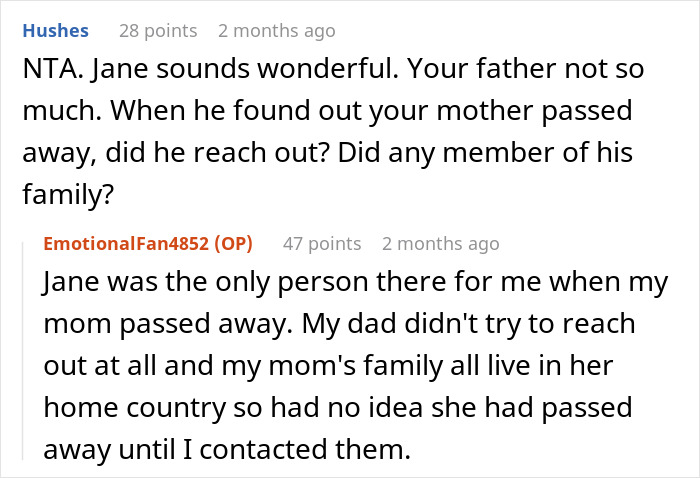
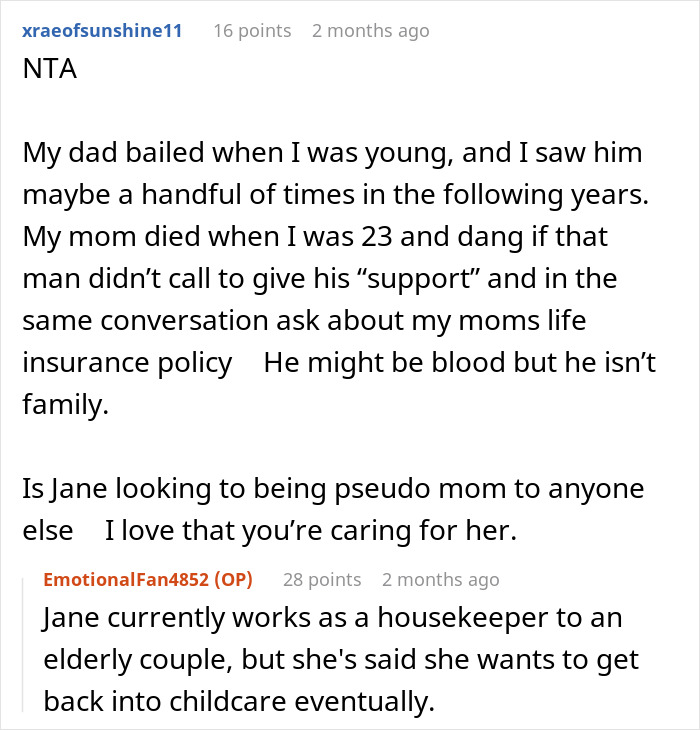
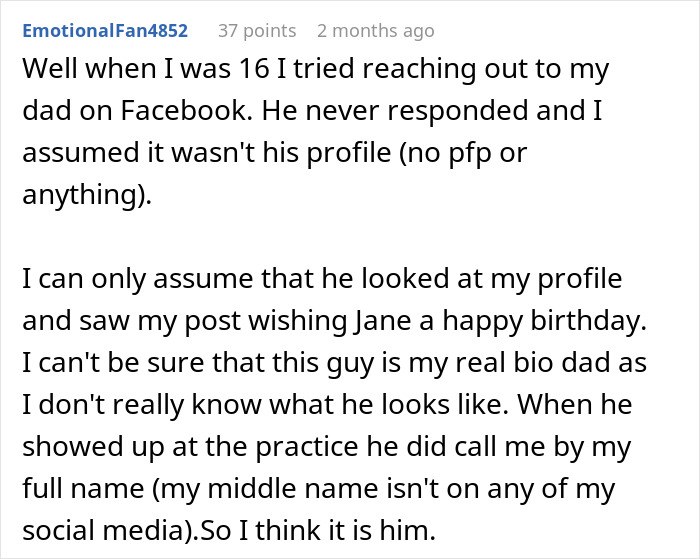
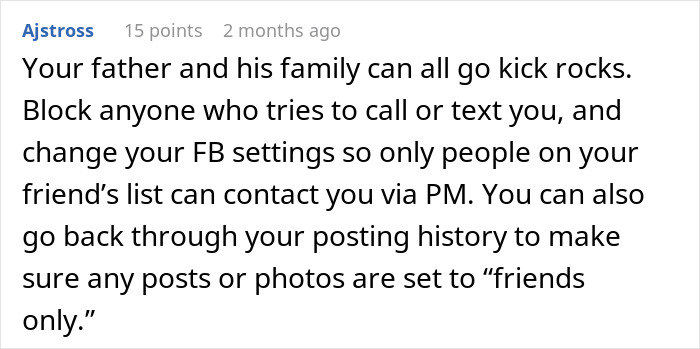
People showed the woman support and said she’s not the bad guy in this situation






